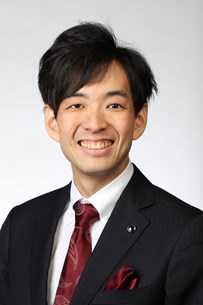Meeting
2023 ASCO Gastrointestinal Cancers Symposium

Department of Gastroenterological Surgery, Aichi Cancer Center Hospital, Aichi, Japan;
Akira Ouchi , Yukihide Kanemitsu , Ryo Sadachi , Tetsuya Hamaguchi , Shunsuke Tsukamoto , Yasuhiro Shimada , Masafumi Inomata , Yasumasa Takii , Koji Komori , Akio Shiomi , Manabu Shiozawa , Masayuki Ohue , Jun Watanabe , Masaaki Ito , Yoshiyuki Kawashima , Takaya Kobatake , Hiroaki Soda , Yoshihisa Saida , Tadayoshi Hashimoto , Yusuke Sano
Background: The prognostic relevance of primary tumor sidedness (PTS) in early-stage colorectal cancer (CRC) is still debated. Several epidemiologic studies have yielded different results due to the wide variation in the quality of CRC surgery and perioperative management. This integrated analysis aimed to investigate the true prognostic relevance of PTS in stage II/III CRC among patients who received standardized surgery and perioperative management. Methods: This analysis included patients from 4 randomized controlled trials (RCTs) conducted by the Japan Clinical Oncology Group (JCOG): JCOG0205, JCOG0404, JCOG0910, and JCOG1006. All patients enrolled in these RCTs received standardized surgery with Japanese D2/D3 lymphadenectomy, and adjuvant 5-FU monotherapy was planned for all stage III patients as a protocol treatment. The data were collated, and patients with stage II/III adenocarcinoma of the colon and upper rectum were identified. For comparison, all eligible patients were categorized into a right-sided (cecum to transverse colon) group or a left-sided (descending colon to upper rectum) group. Primary outcome measures were relapse-free survival (RFS) and overall survival (OS) after primary surgery, and secondary outcome measures included OS after recurrence. Results: A total of 4,113 patients from the 4 RCTs satisfied the eligibility criteria and were divided into two groups; 1,349 right-sided and 2,764 left-sided CRC patients. Five-year RFS after primary surgery for right-sided and left-sided CRC was 79.7% and 79.9% in all patients, 89.7% and 86.9% in stage II and 77.0% and 78.3% in stage III, respectively. There was no significant difference in RFS after adjustment for patient and treatment characteristics (HRadjusted 1.024 [95% CI 0.886-1.183] in all patients, 1.327 [0.852-2.067] in stage II and 0.990 [0.850-1.154] in stage III). Five-year OS after primary surgery was 89.7% and 91.7% in all patients, 97.2% and 96.0% in stage II and 87.6% and 90.7% in stage III, respectively. There was also no remarkable difference in OS after adjustment (HRadjusted 0.879 [95% CI 0.726-1.064] in all patients, 1.517 [0.738-3.115] in stage II and 0.840 [0.689-1.024] in stage III). In total, 795 patients, including 257 right-sided and 538 left-sided CRC, had any recurrence after primary surgery. Five-year OS after a recurrence of right-sided and left-sided CRC were 39.8% and 49.8%, respectively. After adjustment, right-sided CRC had significantly worse OS after recurrence (HRadjusted 0.773 [95% CI 0.627-0.954]). Conclusions: Our results provide more robust evidence for no impact of PTS on recurrence risk and survival after standard surgery and perioperative management for stage II/III CRC. These results indicate that treatment stratification based on PTS is not necessary in early-stage CRC.
Disclaimer
This material on this page is ©2024 American Society of Clinical Oncology, all rights reserved. Licensing available upon request. For more information, please contact licensing@asco.org
2023 ASCO Gastrointestinal Cancers Symposium
Poster Session
Poster Session C: Cancers of the Colon, Rectum, and Anus
Colorectal Cancer,Anal Cancer
Tumor Biology, Biomarkers, and Pathology
J Clin Oncol 41, 2023 (suppl 4; abstr 197)
10.1200/JCO.2023.41.4_suppl.197
197
K19
Abstract Disclosures
2024 ASCO Gastrointestinal Cancers Symposium
First Author: Yoshiaki Nakamura
2024 ASCO Gastrointestinal Cancers Symposium
First Author: Hirotoshi Kobayashi
2024 ASCO Gastrointestinal Cancers Symposium
First Author: Rish Pai
2024 ASCO Gastrointestinal Cancers Symposium
First Author: Pashtoon Murtaza Kasi